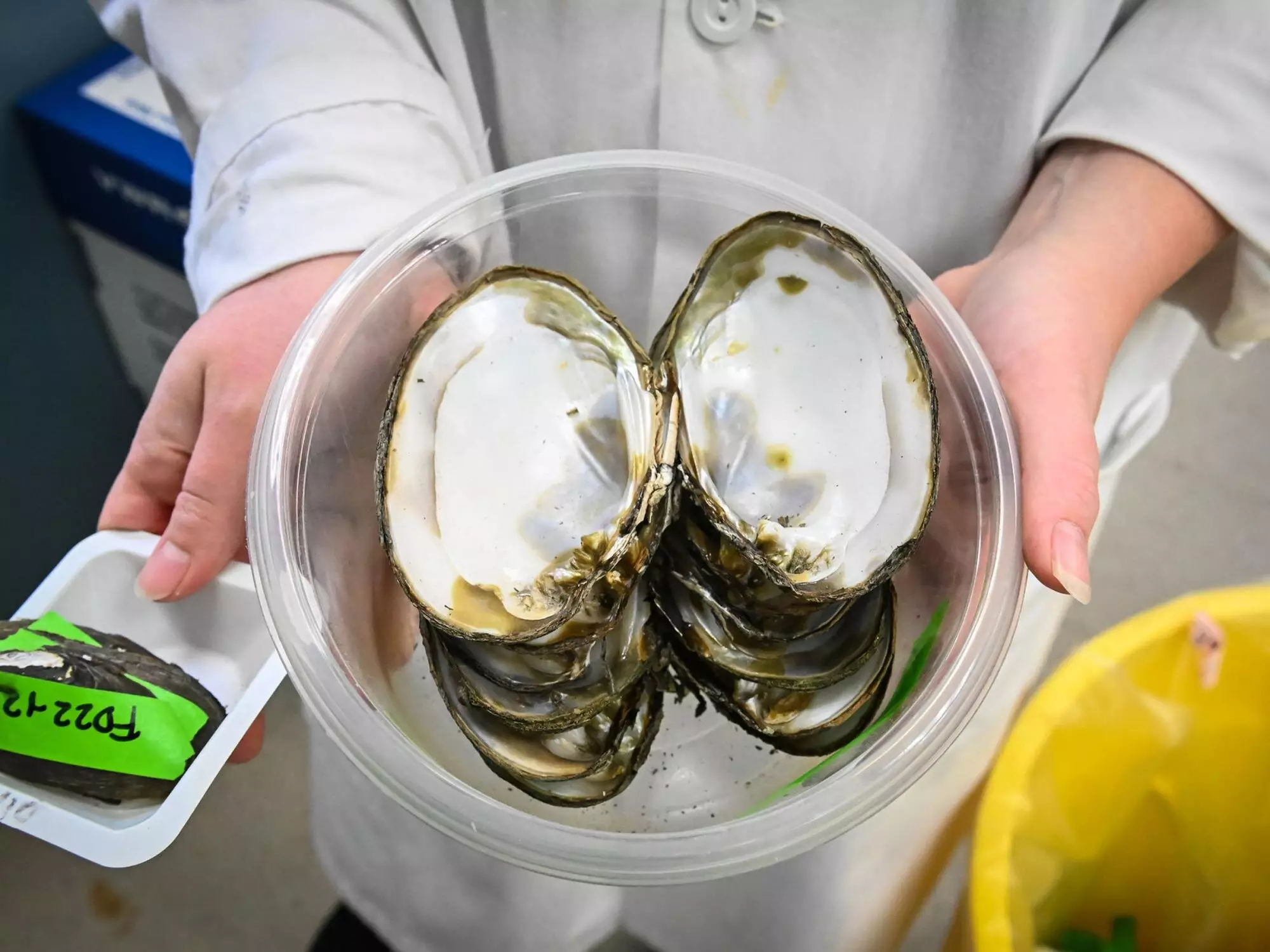Freshwater mussels, known for their longevity and ability to stay in one place for decades, play a vital role in monitoring the health of their environment. As biomonitors, these bivalves can indicate how clean or polluted the water around them is by reflecting what is in their surroundings. Recent research by Penn State scientists has shed light on the impact of fracking wastewater on freshwater mussels in Western Pennsylvania, revealing concerning findings about the contamination levels in these aquatic organisms.
The study conducted by researchers from Penn State’s Department of Civil and Environmental Engineering focused on mussels downstream of a treatment facility that had been accepting and treating fracking wastewater for over two decades. Even after the facility ceased operations in 2019, the mussels were found to contain radium traced back to the fracking wastewater from the Marcellus Shale, a prominent natural gas field spanning several states. This discovery highlights the long-lasting effects of wastewater disposal on aquatic ecosystems.
The presence of radium in the tissues and shells of mussels indicates a significant level of contamination resulting from treated fracking wastewater. The high salinity and radioactive materials in the discharged water posed a threat to the mussels, leading to the death of those closest to the discharge sites. However, mussels further downstream were able to adapt to the altered chemical composition of the water and absorb the contaminants into their shells and tissues, showing a remarkable resilience to the pollution.
Health Implications for Aquatic Life
While freshwater mussels are not consumed by humans, larger species such as waterbirds, raccoons, and otters rely on these bivalves as a food source. The contamination found in the mussels raises concerns about the potential impacts on other aquatic organisms, especially endangered species that may be more vulnerable to pollutants. The bioaccumulation of contaminants in the food chain could have far-reaching consequences for the overall health of aquatic ecosystems.
The findings of this study have important implications for regulating wastewater disposal practices, particularly in regions where mussels are harvested for food. The presence of radioactive elements in the mussels underscores the need for stricter monitoring and regulation of industrial wastewater treatment to prevent further contamination of freshwater habitats. By understanding the impact of pollution on freshwater mussels, policymakers can make informed decisions about protecting these critical species and the ecosystems they inhabit.
The research conducted by Penn State researchers reveals the alarming extent of contamination in freshwater mussels exposed to fracking wastewater. The bioaccumulation of radium and other pollutants in these bivalves highlights the interconnectedness of aquatic ecosystems and the need for sustainable environmental practices. By addressing the issues raised in this study, we can work towards safeguarding the health and biodiversity of our freshwater environments for future generations.


Leave a Reply